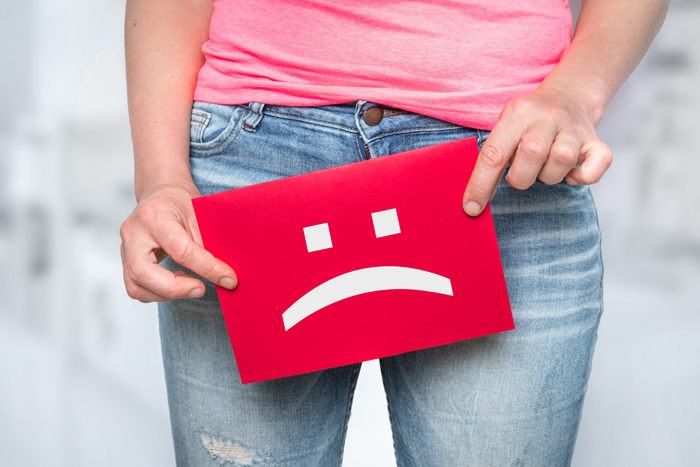Urine Incontinence Treatment in Kondapur, Hyderabad
Involuntary leakage of urine is called urine incontinence. It occurs when you are no longer able to control your urine. It is a problem that affects many people.
What is Urinary Incontinence?
When you can no longer control your urine, it is called urinary incontinence. The person suffering from urine incontinence cannot prevent the urine from leaking out.
Urine incontinence can be due to many factors like stress, pregnancy and obesity. The older you get, the higher the chances are of getting it.

What Are the Types of Urine Incontinence?
The types of urinary incontinence include:
Urge incontinence: You may feel a sudden urge to urinate and there is urine leakage at the same time.
Stress incontinence: Doing activities, laughing, coughing or running can lead to leakage of urine.
Overflow incontinence: Sometimes, there is an inability to empty the bladder and this can lead to leakage of urine.
Total incontinence: If the bladder can no longer store urine, it can result in leaking.
Functional incontinence: There can be leakage of urine if the person cannot reach the washroom on time because of mobility issues.
Mixed incontinence: This is a combination of the types.
What Are the Symptoms of Urine Incontinence?
The main symptom of urine incontinence is the involuntary leakage of urine.
But when and how it occurs depends on the type of urinary incontinence you have and this include:
Stress incontinence: It is the most common type of urine incontinence. Stress refers to physical stress. Actions like coughing, sneezing, laughing, heavy lifting or exercise may trigger stress incontinence.
Urge incontinence: It is also known as “overactive bladder” or “reflex incontinence.” It is the second most common type of urine incontinence. Few factors which can trigger urge continence include:
- If there is a sudden change in the position.
- If there is a sound of running water
- During sexual intercourse
Overflow incontinence: It is more common among men with prostate gland problems, blocked urethra or a damaged bladder. The bladder can no longer hold the urine and it cannot empty the urine completely. If there is a constant dripping of urine from your urethra, it can be a symptom of overflow incontinence.
Mixed incontinence: You will experience symptoms of both urge and stress incontinence.
Functional incontinence: This is more prevalent among elder people. They feel the need to urinate but cannot make it on time to the bathroom due to mobility issues.
Total incontinence: Leakage of urine continuously or periodic involuntary leakage of urine can also be a symptom of total incontinence.
What Are the Causes of Urine Incontinence?
The type of incontinence and the causes are related.
Stress incontinence
- Childbirth
- Menopause
- Age
- Obesity
- Hysterectomy or other surgical procedures
Urge incontinence
- Multiple sclerosis (MS), Parkinson’s disease or stroke which are neurological conditions
- Cystitis - it is an inflammation of the lining of the bladder
- Enlarged prostate can cause the bladder to drop which can irritate the urethra
Overflow incontinence
- Constipation
- A tumour
- Enlarged prostate
- Urinary stones
Total incontinence
- Anatomical defect
- Spinal cord injury
- A fistula( when a tube develops between the bladder and a nearby area, mostly the vagina)
Other causes include:
- Medications like diuretics, sleeping tablets, muscle relaxants, sedatives and antihypertensive drugs.
- Alcohol consumption
- Urinary tract infections (UTIs)
When to See a Doctor?
If you feel the constant urge to urinate or there is dripping of urine in large amounts, you should book an appointment at the earliest.
Request an appointment at Apollo Spectra Hospitals, Kondapur
Call 1860-500-2244 to book an appointment
What Is the Treatment for Urine Incontinence?
Pelvic floor muscle exercises
Your doctor at Apollo Spectra Kondapur may recommend pelvic floor exercises that will strengthen your muscles. These exercises are also known as Kegel exercises. This will help stress incontinence and urge incontinence.
Behavioural techniques
Your doctor may recommend bladder training, fluid and diet management, scheduled toilet trips, double voiding to control urine leakage.
Medications
Your doctor may prescribe medications like Anticholinergics, Mirabegron (Myrbetriq), Alpha-blockers or Topical estrogen to control involuntary leaking of urine.
Electrical stimulation
Sometimes electrodes can be temporarily inserted into your vagina or rectum to strengthen pelvic floor muscles.
Medical Devices
Medical devices like urethral insert and Pessary is used in the case of a woman to help urine incontinence.
Interventional therapies
Interventional therapies like bulking material injections, on botulinum (Botox) and nerve stimulators are used to treat urine incontinence.
Surgery
Surgeries like an artificial urinary sphincter, prolapse surgery, bladder neck suspension and sling procedures can treat urine incontinence.
Absorbent pads and catheters
Pads, protective garments and catheters can be recommended by your doctor to treat urine incontinence.
Urine incontinence can be experienced due to many reasons. Most aged people are more prone to develop urine incontinence. With the right treatment, one can cure the condition.
Urine incontinence is common among old people. But with the right medication, it can be controlled and treated.
Urine incontinence can be temporary or it can last longer.
No, urine incontinence is not life-threatening. But it can affect the quality of your life.
Symptoms
Our Top Specialities
NOTICE BOARD
CONTACT US
CONTACT US
 Book Appointment
Book Appointment


.svg)
.svg)
.svg)
.svg)








